Troubleshooting Tips
for Common Water Heater Problems
Keep your home running like a well-oiled machine with a smoothly-functioning water heater. Vital to your daily routine, avoiding the shock of breaking down is essential. Luckily, our guide has got you covered with troubleshooting tips and overviews of the most common home water heater issues, so that you can tackle any problems that may arise with ease.

The tank is leaking
If your water heater is leaking, it's likely due to a faulty pressure relief valve or a corroded tank. Here's what you need to know to fix the problem:
Make sure to check the pressure relief valve for any signs that it needs to be replaced.
Give the tank a careful inspection to look for any signs of damage or corrosion. If corrosion is found, the tank will need to be replaced.
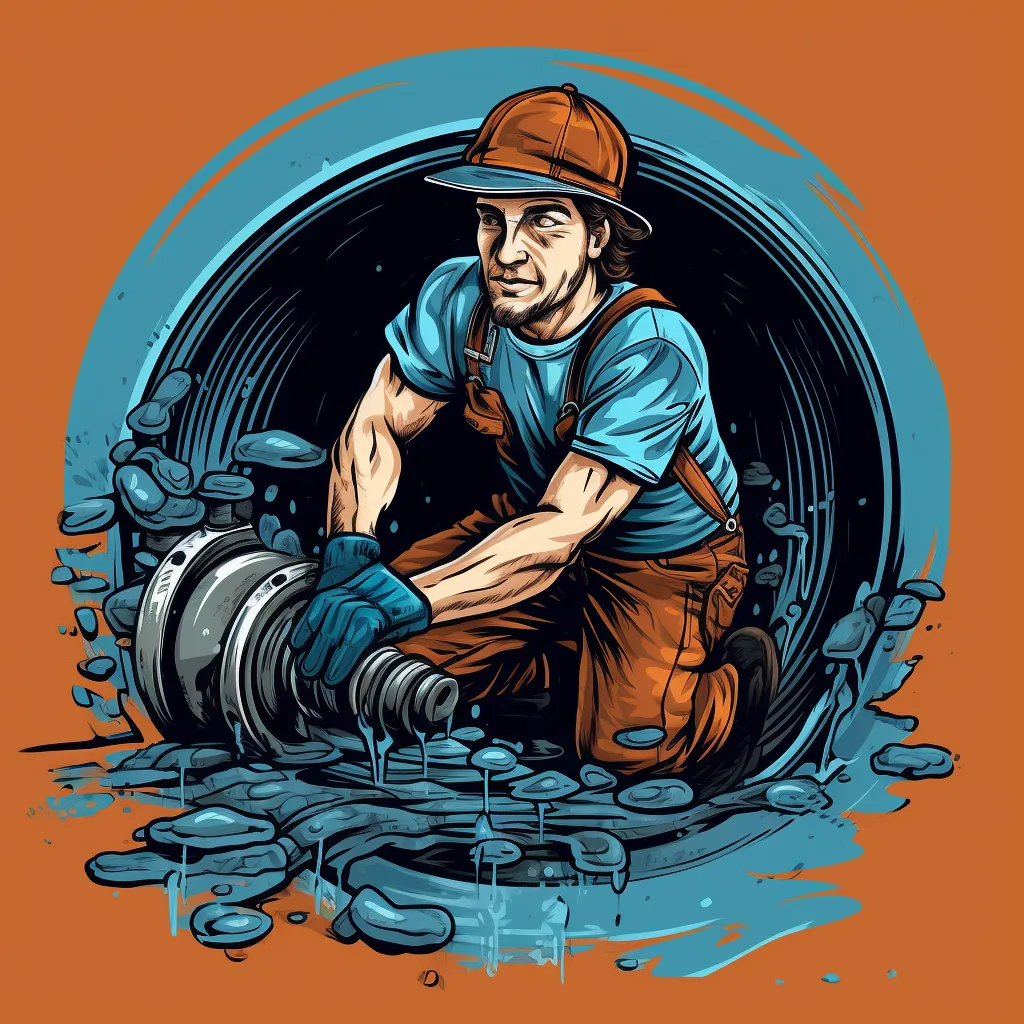
The water is discolored
Discolored water is a sign that your water heater needs flushing and descaling. Follow these steps to fix the issue:
Determine if you need to replace the pressure relief valve.
Flush the system with a mixture of white vinegar and water.
Check the anode rod for signs of deterioration and replace if necessary.
Call in a professional for a deep descaling treatment if needed. Enjoy reliable, efficient hot water for years to come!

The water smells bad
If the water smells bad, it might be caused by dirty bacteria buildup. Here's what you can do:
Have a professional inspect the tank to determine if it needs to be replaced.
To reduce odors, flush out the water heater by using a solution of white vinegar and water.
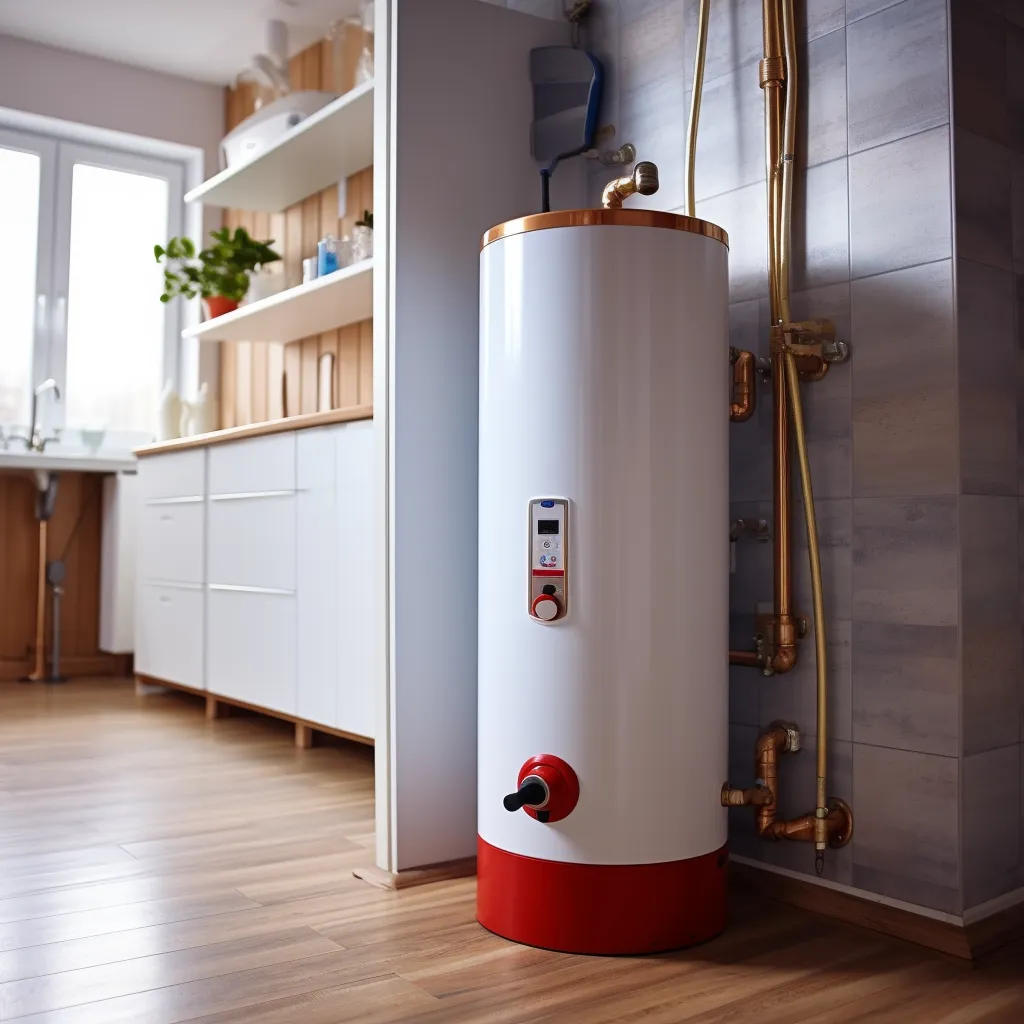
Noisy water heater
Is your water heater making strange noises? The culprit could be either sediment buildup or loose parts. Don't worry, here's what you can do to fix it:
Prevent sediment build-up in your water heater by flushing it regularly.
Have a licensed plumber inspect all internal components.

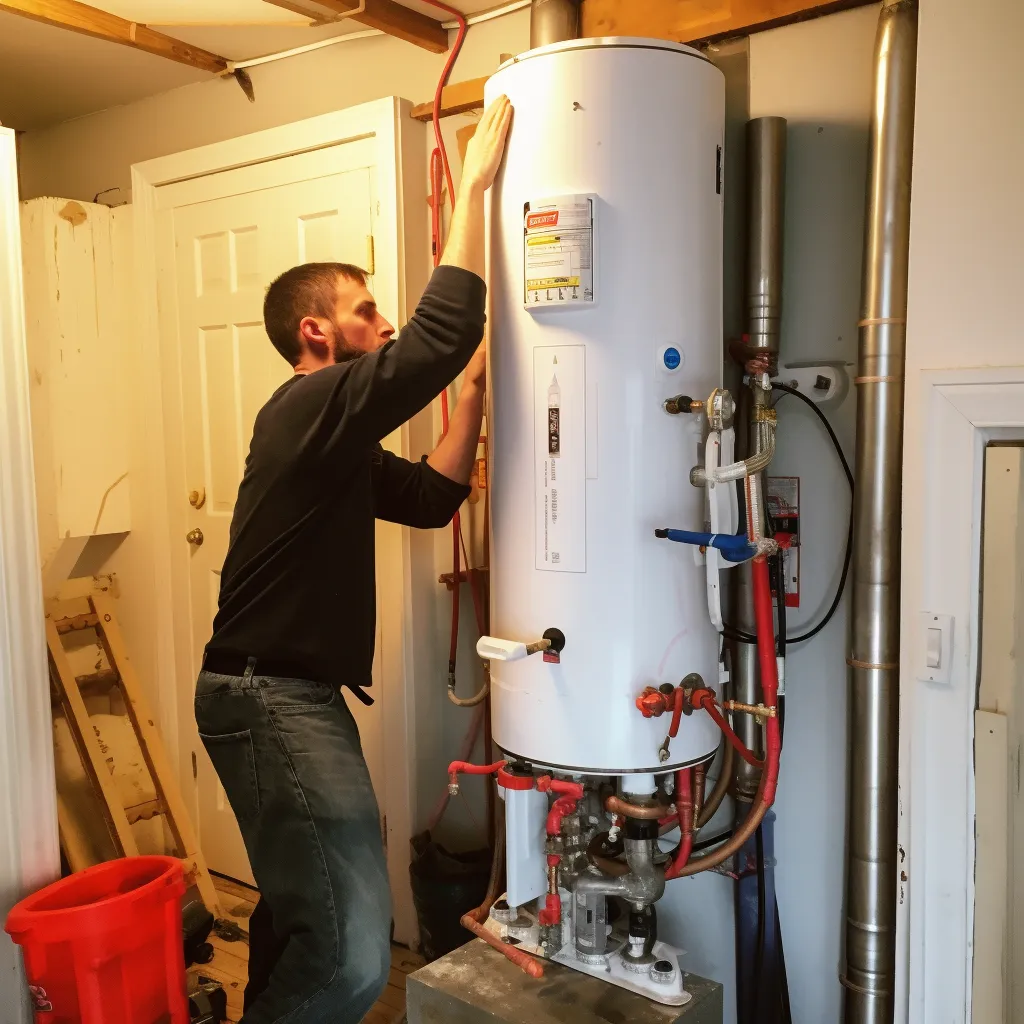
Tank takes a long time to reheat
Is your tank heater taking too long to reheat? Don't fret! This common issue can be caused by a malfunctioning thermostat, an undersized tank, or mineral buildup. Follow these steps to get your heater up and running again:
Don't overlook the importance of getting the right water temperature.
If your water isn't heating up as it should, consider replacing the thermostat.
Have a pro check for mineral buildup and descale if needed.
If you're always running out of hot water, upgrading to a bigger tank could be the answer.
Low hot water pressure
Are you struggling with low hot water pressure? Don't worry, we've got solutions. Your small hot water tank or leaky system may be at fault, but there are simple steps you can take to fix the problem. Here's what to do:

Ensure your tank is large enough to handle all your home's hot water outlets. If it's not, opt for a bigger size.
To be safe, have a licensed plumber inspect your plumbing for leaks.
Don't overlook the importance of checking that your pressure relief valve is working properly.

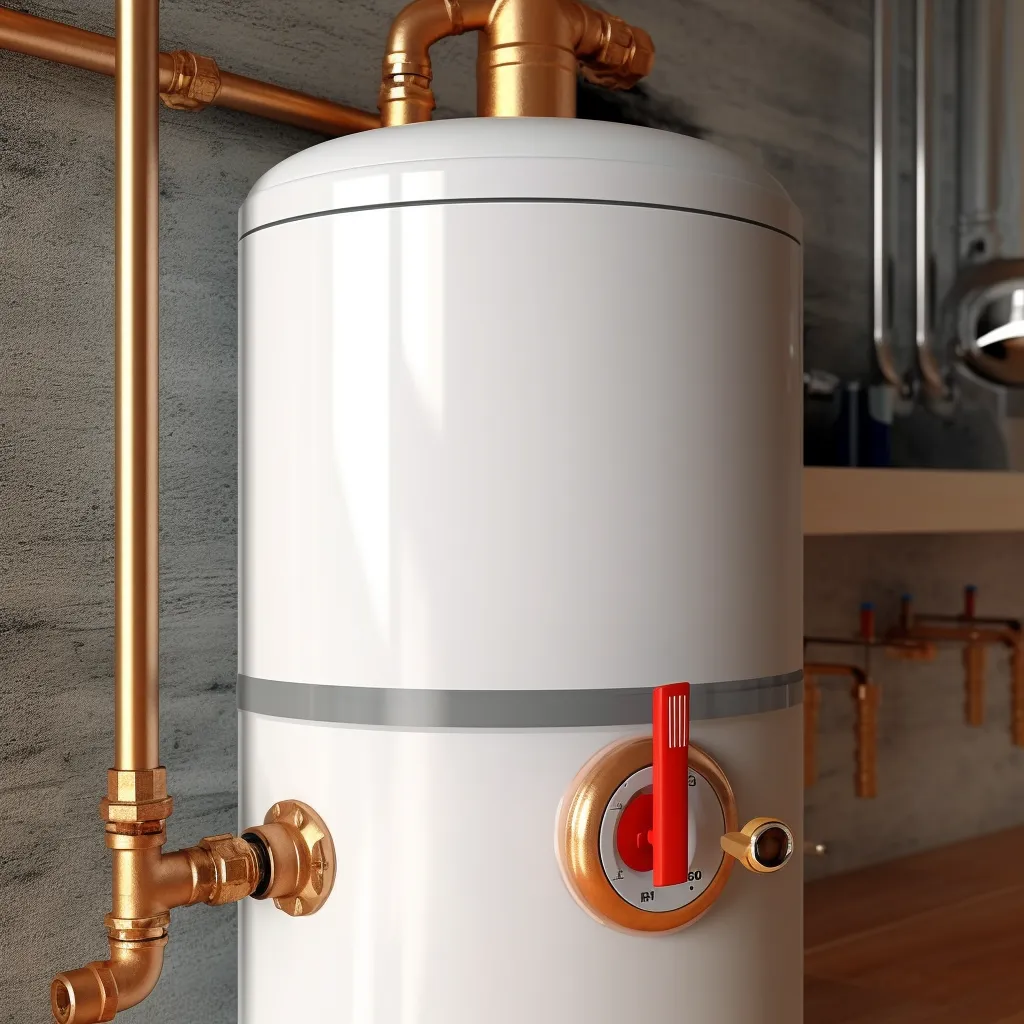
Low supply of hot water
Keep an eye on your water temperature - if it drops too fast, something may be wrong. Check for problems with the thermostat, tank size, or pipe blockages with these helpful troubleshooting tips:
Ensure your thermostat is working correctly and keep your home comfortable year-round.
Get your water heater inspected and descaled by a pro for optimal performance.
Upgrade to a larger tank for consistent and plentiful hot water.
Ways to prevent future water heater problems
To prevent future issues with your water heater, you should:
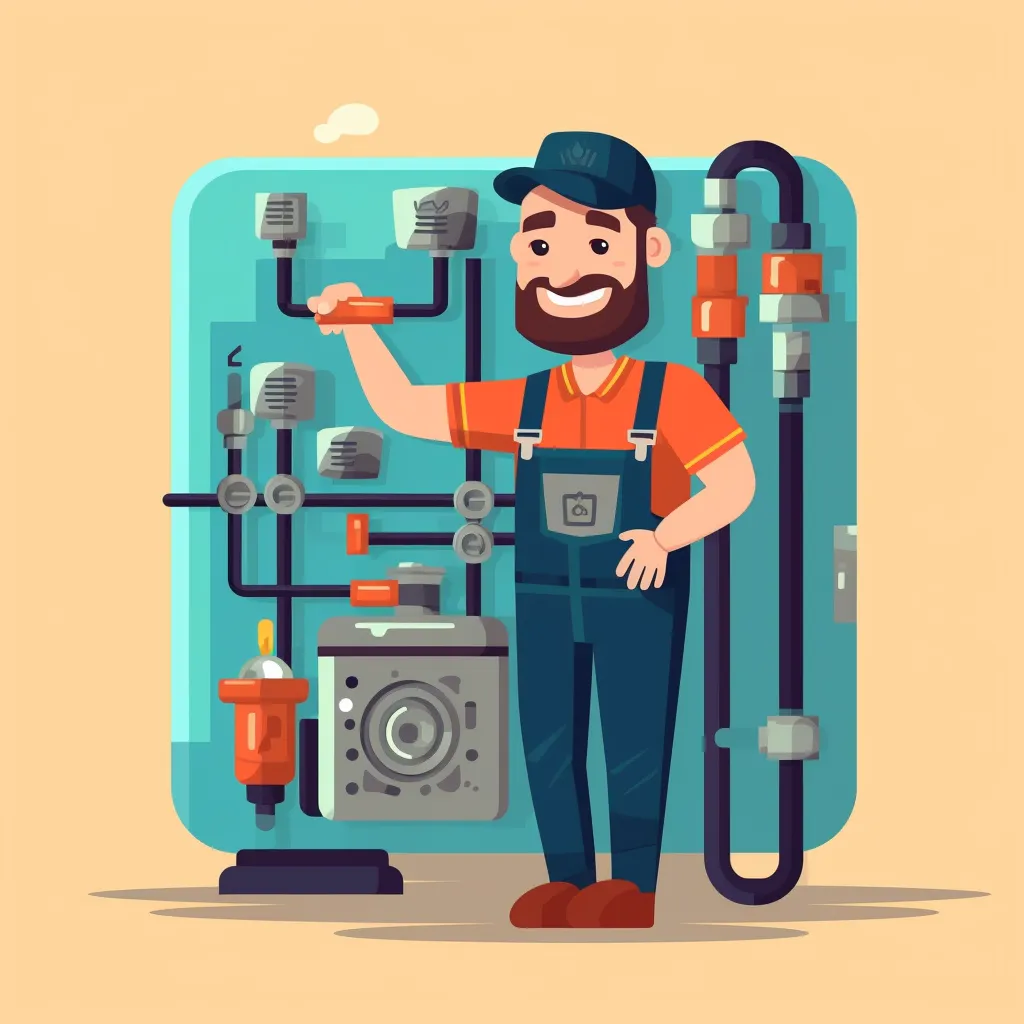
Regularly check for wear and corrosion.
Flush the tank to remove sediment buildup.
Ensure valves and fittings are leak-free.
Replace the anode rod every few years.
Arrange for full descaling or annual servicing.
Choose the right size heater and adjust the temperature.
Insulate pipes to reduce heat loss.
Opt for energy-efficient models.
Fix leaks pronto and know where the shutoff valve is.
Lower the temperature and reduce odors with vinegar.
Avoid damaging chemicals and stick to the manufacturer's instructions.

If you're unsure about your repair or maintenance capabilities, it's wise to contact a professional. However, you can keep your water heater running smoothly and prevent future issues by following a few basic steps.
How do you know when
to hire a licensed plumber?
Don't risk the performance and safety of your water heater. With a professional inspection and service from a licensed plumber, you can avoid costly repairs and discover energy-saving options. Plus, they'll help you choose the right water heater for your needs. If you're experiencing problems, don't wait. Contact a plumber right away to avoid further damage.
What to look for in a licensed plumber
When choosing a licensed plumber, be sure to do your due diligence and look for:

It's crucial that you verify their license and insurance coverage.
The same goes for selecting a professional who specializes in repairing and maintaining your water heater.
Before deciding, take a moment to conduct your own research. Scour a company's website, read reviews, and seek recommendations from peers. Armed with information, you'll be better equipped to choose the best candidate to meet your needs.
Of course, pricing is a consideration. Compare quotes to ensure you're receiving a fair rate that aligns with your budget.
Another key aspect is the technician's knowledge. Check that they're up to date on the latest technologies and trends in their field.
To avoid potential headaches down the road, inquire about service guarantees and emergency availability.
Open communication goes a long way toward ensuring you fully understand the work being done.
Reach out to an experienced professional
If you're having problems with your water heater, there could be a variety of reasons for it. However, we've outlined some of the most common ones for you. For a reliable and durable fix, it's recommended to have a licensed plumber inspect the unit. These suggestions can help alleviate any issues you're having with your water heater, resulting in a smoother-running household. If you need further assistance or guidance, don't hesitate to contact an experienced plumber who can assess your water heater and suggest effective solutions to get it up and running again.
Ready to Solve Your Plumbing Needs?
For reliable, expert plumbing services tailored to the needs of Melbourne and its neighboring cities, look no further than RapidFlow Water Heaters. We’re here for you 24/7, ensuring that your plumbing is always in top condition.
Call us today to schedule your service!
Business Hours: Monday - Sunday, 24 Hours
Phone Number: 321-844-2770
Location: Melbourne, FL, serving all surrounding areas.
Trust your local experts at RapidFlow Water Heaters for professional, timely, and efficient plumbing solutions.
GET IN FULL TOUCH
PHONE: 321-844-2770
EMAIL:
sam@waterheatermelbourne.com
RapidFlow Water Heaters
Melbourne, FL 32901

